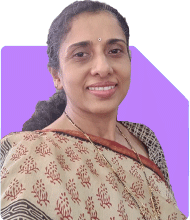ECE at NIT or CS at IIT for a career in AI?
Dr Dipankar Dutta |1856 Answers |Ask -Follow
Tech Careers and Skill Development Expert - Answered on Sep 28, 2024
He has 27 years of experience and his interests include AI, data science, machine learning, pattern recognition, deep learning and evolutionary computation.
Aside from his responsibilities at the college, he also delivers lectures and conducts webinars.
Dr Dipankar has published 25 papers in international journals, written book chapters, attended conferences, served as a board observer for WBJEE (West Bengal Joint Entrance Examination) exams and as a counsellor for engineering college admissions in West Bengal. He helps students choose the right college and stream for undergraduate, masters and PhD programmes.
A senior member of the Institute of Electrical and Electronics Engineers (SMIEEE), he holds a bachelor's degree in engineering from the Jalpaiguri Government Engineering College and a an MTech degree in computer technology from Jadavpur University.
He completed his PhD in engineering from IIEST, Shibpur (formerly BE College).... more

Is it good to join ECE at NIT or CS at IIT?
You may like to see similar questions and answers below
Nayagam P P |10928 Answers |Ask -Follow
Career Counsellor - Answered on Jul 07, 2024
Dr Dipankar Dutta |1856 Answers |Ask -Follow
Tech Careers and Skill Development Expert - Answered on Apr 25, 2025
Prof Suvasish Mukhopadhyay | Answer |Ask -Follow
Career Counsellor - Answered on Jun 12, 2025
Nayagam P P |10928 Answers |Ask -Follow
Career Counsellor - Answered on Jun 29, 2025
Dr Dipankar Dutta |1856 Answers |Ask -Follow
Tech Careers and Skill Development Expert - Answered on Jul 06, 2025
Radheshyam Zanwar |6825 Answers |Ask -Follow
MHT-CET, IIT-JEE, NEET-UG Expert - Answered on Mar 02, 2026
Ravi Mittal |705 Answers |Ask -Follow
Dating, Relationships Expert - Answered on Mar 02, 2026
Ravi Mittal |705 Answers |Ask -Follow
Dating, Relationships Expert - Answered on Mar 02, 2026
Patrick Dsouza |1453 Answers |Ask -Follow
CAT, XAT, CMAT, CET Expert - Answered on Mar 02, 2026
Nayagam P P |10928 Answers |Ask -Follow
Career Counsellor - Answered on Mar 02, 2026
Nayagam P P |10928 Answers |Ask -Follow
Career Counsellor - Answered on Mar 02, 2026
Dr Deepa Suvarna |177 Answers |Ask -Follow
Paediatrician - Answered on Mar 02, 2026
Ramalingam Kalirajan |11047 Answers |Ask -Follow
Mutual Funds, Financial Planning Expert - Answered on Mar 02, 2026
Ramalingam Kalirajan |11047 Answers |Ask -Follow
Mutual Funds, Financial Planning Expert - Answered on Mar 02, 2026
T S Khurana |558 Answers |Ask -Follow
Tax Expert - Answered on Feb 28, 2026


























